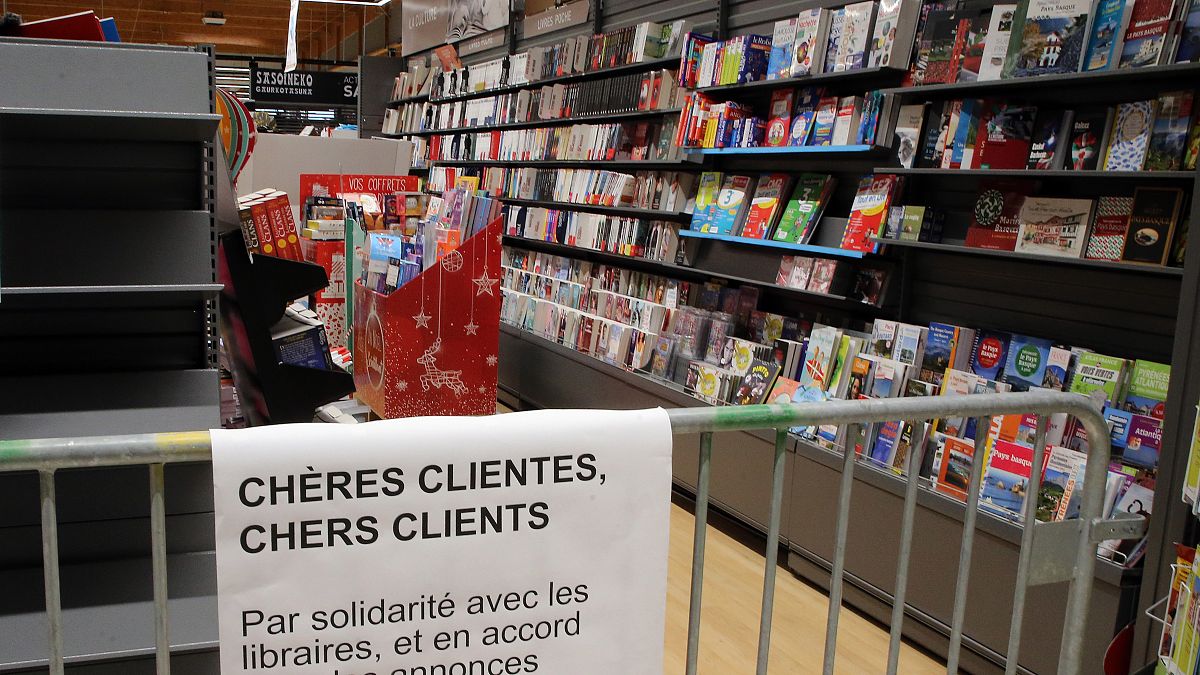While bigger businesses can afford lawyers to interpret the definition of 'essential' goods, smaller enterprises fear they will see their stock go unsold.
Independent shop owners in England are furious that some of their bigger rivals are bending lockdown rules to suit themselves. The second coronavirus lockdown began a week ago and there are three more to go. After three months of lockdown, small retailers were counting on the Christmas season more than usual this year.
Christmas is the time of year when most shop owners make most of their money. This year, for too many, the start of the season is passing them by. Husband and wife team, Dominic and Priya have closed the doors on their small chain of gift shops in London.
"We’ve never felt as anxious as we’re feeling now because we’re so close to Christmas and we’ve ordered so much Christmas stock," Priya Aurora-Crowe told Euronews.
"It's been a bit of a shock entering into a second lockdown," Dominic Aurora-Crowe added, "especially at this time of year."
The couple are coping by ramping up their website and appealing to customers to buy online, but it doesn’t close the gap. They say it amounts to about one per cent of a normal Christmas season - and fear that after 20 years, this year could put them out of business.
The kind of things we buy for Christmas - gift items and clothes - are classed as non-essential and these types of shops are closed. Unlike those selling food and medicines which remain open. But what about those that sell both?
In France, supermarkets have been told not to sell non-essentials; and must stop shoppers who try to buy them. In England, shops can interpret the rules their own way.
In the UK, a nationwide chain of carpet shops has designated itself an essential retailer. Carpetright says it reviewed the regulations and decided to remain open because many of its customers wanted to complete essential projects."
Big chains have lawyers on staff to help make such decisions. An advantage their small rivals can’t match.
"The maximum fine is £10,000 (11,1913 euros) which a large chain may well find easy as opposed to a small business which has already been closed for some time," says Andrew Goodacre, Chief Executive of the British Independent Retailers Association. "They are sticking to the law, they’re not opening. They’re seeing these other stores, not break the rules, but interpret them in such a way that allows them to open."
Independent shops have been urged to embrace click and collect; but many are playing catch up in online retail.
The rules say that items must be purchased online, in advance. Priya and Dominic don’t understand why they can’t simply sell from their doorway to passers-by.
"We really do rely on passing trade in our shops. There are some people around and it would be really nice if we were able to offer a service to them," Dominic Aurora-Crowe says.
They hope the government is listening and will help them save Christmas, so they can live on for another year.
